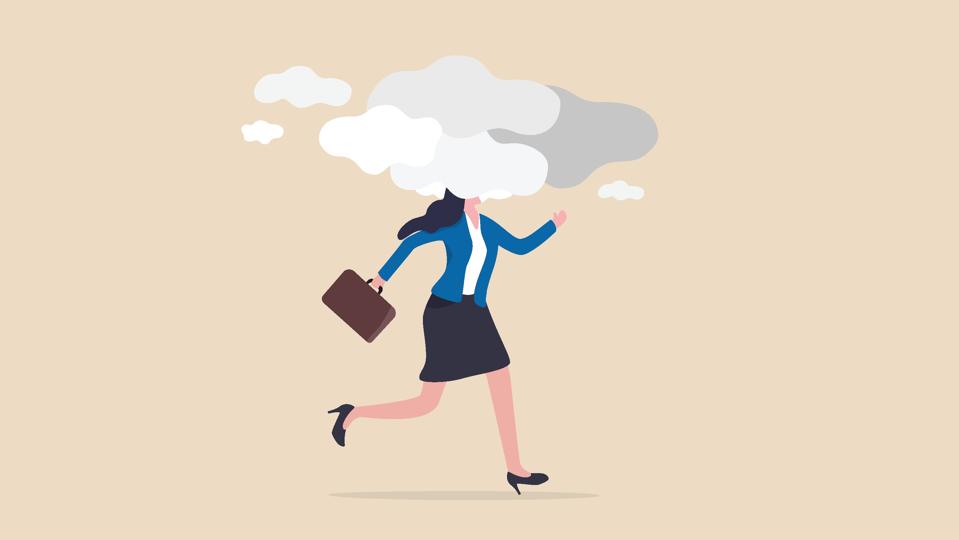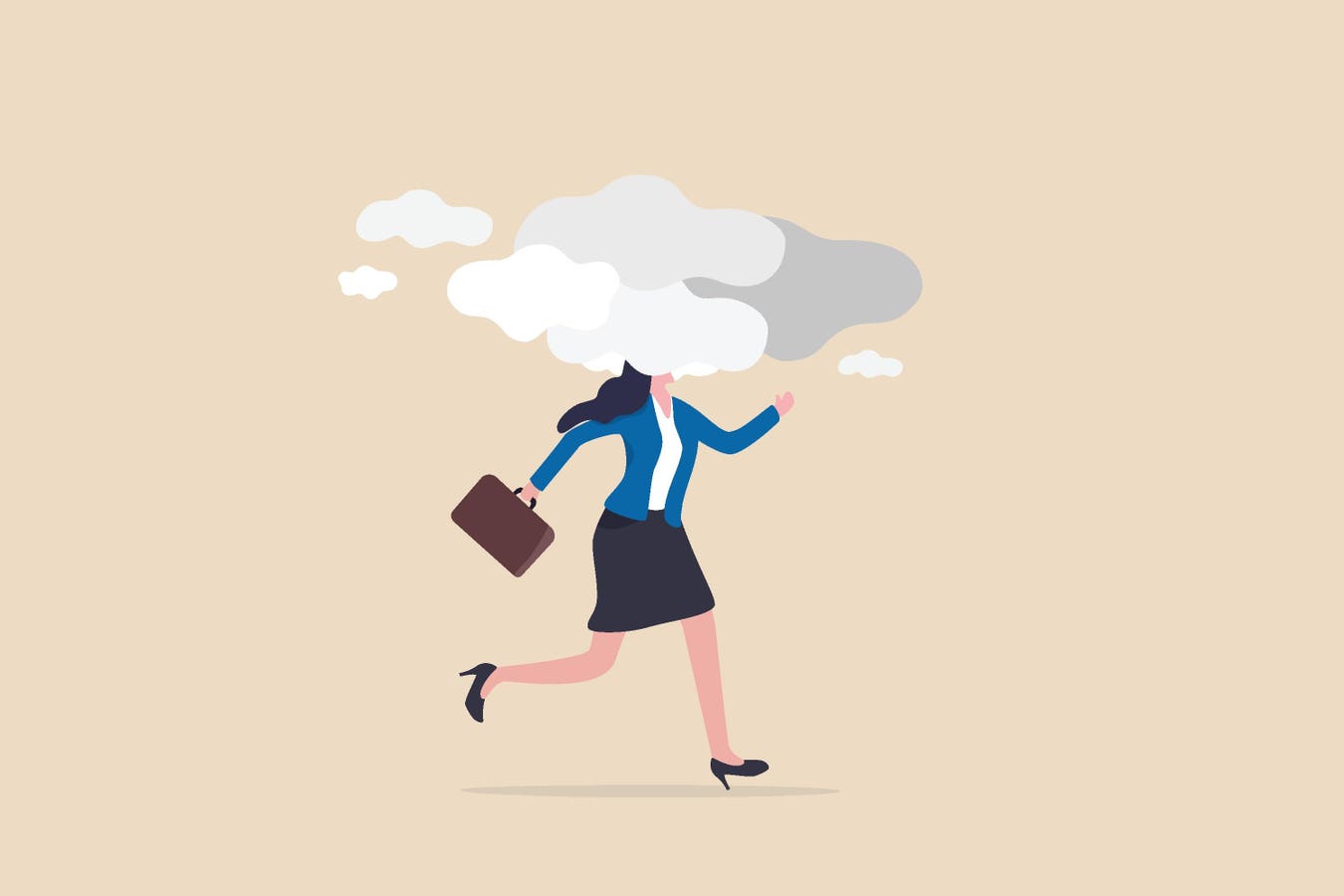
Morning brain fog can slow down the most important part of your day. Here are five quick and easy changes you can make to your morning routine to reclaim it.
getty
You know that feeling when your alarm goes off and your brain feels like it’s been wrapped in cotton? You sit at your workstation with a cup of coffee in front of you, staring blankly at the monitor as if your mind needs to reboot before it can remember what you were supposed to be doing.
That hazy, slow-to-start state, that we sometimes call “morning brain fog,” doesn’t just waste the initial thirty minutes of your day. It can actually dictate the tone for everything else: the way you think, the way you make decisions and the way you feel during the day.
Ironically, mornings should be the moment our brains are sharpest. It’s when we make choices that structure the rest of our day — what to tackle first, what messages to respond to, even what emotional tone to bring into our interactions.
But increasingly, people report feeling sluggish and unfocused in those first hours. And we’re no strangers to the culprits: erratic sleep schedules, poor light exposure, dehydration, late-night scrolling and modern work environments. We live surrounded by screens that disorient our body’s sense of time, and we often wake up in dark rooms that signal our brains to sleep some more.
Brain fog isn’t a personality trait or a sign of being lazy. It’s usually physiological — and surprisingly, reversible. You can give your body and brain a gentle push toward clarity with small, science-backed actions that help recalibrate your alertness system and sharpen cognitive performance within minutes.
Here are five fast, research-supported techniques you can try as early as tomorrow morning.
1. Ditch Mood Lighting During The Day
You might adore that golden, cozy glow your bedside lamp casts, but in the morning hours, it’s working against you. Research indicates that exposure to blue-enriched light early in the day dramatically improves reaction time, mood and mental alertness.
In one controlled study, participants exposed to blue-rich lighting for just half an hour in the morning responded more quickly to cognitive tasks than those under warm light. The reason is straightforward: blue light activates the brain’s wake-up system by inhibiting melatonin and stimulating regions that regulate attention and executive function.
If you don’t have a dedicated blue-light lamp, you can still hack this system. Get out into natural daylight the moment you wake: on your balcony, by a window or even by a bright doorframe. Leave all your curtains open. If you wake up before the sun, use a white or daylight-spectrum LED bulb for your first hour of the day. And, most importantly, avoid the dim, amber-toned lighting until later in the evening when you’re winding down.
2. Shock Your System With A Burst Of Cold
Both modern research and ancient wisdom agree on the power of a short jolt of low temperature to wake oneself up. For example, even just ending your morning shower with 60 seconds of cool or cold water has been linked to increased alertness, elevated mood and improved attention.
In a 2023 study on large-scale brain networks, participants were asked to immerse themselves in cold water for five minutes — a “cold plunge,” as some refer to it. As expected, they reported a rapid boost in energy and attentiveness. However, there were also a couple of other unforeseen benefits. On top of a spike in energy and alertness, they also reported an uptick in feelings of pride and inspiration. A mere five minutes of controlled cold exposure snowballed into a whole host of physiological and psychological benefits.
This doesn’t mean that you have to plunge into an ice bath to get results. Even splashing cold water on your face, washing your hands in cold water or stepping outside briefly in the morning air can stimulate the vagus nerve, which helps regulate heart rate and alertness.
If the idea of a chilly five minute shower seems too daunting, then you can always begin with a shorter twenty second burst of cool water at the end of your shower. If you see solid results, you can then build up from there. Keep in mind that the goal isn’t for you to suffer, but for you to be stimulated. That brief thermal shock tells your body to release norepinephrine, a neurotransmitter that helps you feel clear and awake without another cup of caffeine.
3. Drink Water Before You Drink Coffee
Most people roll out of bed, shuffle to the kitchen, and reach straight for coffee. However, after seven or eight hours of sleep, your body is already running low on water. And mild dehydration, even at one to two percent, is enough to dull attention and slow reaction time. Research has shown that low hydration status, measured by higher blood osmolarity, is often associated with poorer attention, slower processing speed and higher fatigue.
Overnight, your body loses water through respiration and sweat, so you often wake up in a mild state of dehydration. Yet most people reach for coffee before they’ve even had a sip of water, layering caffeine on top of an already parched system.
A simple way to break this loop is to keep a glass of water by your bedside and drink it before you touch your phone or make coffee. About 250 to 500 milliliters (around 8.5 to 17 fluid ounces) is ideal for most adults, depending on their body size.
You don’t need electrolytes or fancy formulations; plain water will work just fine. The act itself restores circulation, rebalances brain perfusion and rehydrates neural tissue. Within minutes, your circulation improves, oxygen delivery to your brain picks up and the fog starts to lift. You’ll notice your coffee hits differently, too. The lift will be cleaner and steadier, without that mid-morning crash.
4. Take Five Minutes For Slow, Diaphragmatic Breathing
You may especially benefit from this intentional breathing technique if brain fog has a “narrowing” effect on your thoughts. This is one of many signs that your nervous system might be running in “fight or flight” mode. Thankfully, slowed and controlled breathing can be enough to flip that switch back to normal. You might have learned this firsthand already if you’ve ever tried yoga, where it’s referred to as “pranayama” or diaphragmatic breathing.
Some of these effects were recorded in a randomized controlled trial, published in 2022 in the Journal of Breath Research. The results of the trial showed that, for participants who had previously struggled with poor sleep quality, daily breathing exercises significantly reduced their daytime drowsiness and improved mental energy.
Despite how yoga-focused “pranayama” may sound, you actually don’t need to be on a yoga mat for it. Once you’ve hydrated in the morning, you can start the process simply:
Sit up straight and breathe in through your nose slowly for about five secondsHold this breath in for a brief moment, and then exhale for another six Repeat this process for three to five minutes.
Notice your belly rising and falling with each breath. Soon, you’ll feel both calmer and readier for the day ahead. And if your attention starts slipping, you can always do another short round mid-morning or between tasks.
5. Chew Gum Before Mentally Demanding Work
Before you laugh at it, know that the science behind this last trick is legitimate. Chewing gum, for a short while, has proven as an efficient way to boost alertness and mental performance. In several experiments, as noted in a study from BioMed Research International, people who chewed gum before performing a task had higher alertness, fewer cognitive problems and, in turn, greater work performance.
So, the next time you find yourself struggling to get your work day started, try chewing a piece of gum. Choose a mild mint flavor, if you can; the scent adds a small arousal effect of its own. It might seem as trivial as an old wives’ tale, but the science suggests it can give you a cognitive window of clarity for up to 25 minutes.
Does brain fog make your mornings hazy and lethargic? Take the science-backed Brain Fog Scale to know if it’s a cause for concern.

